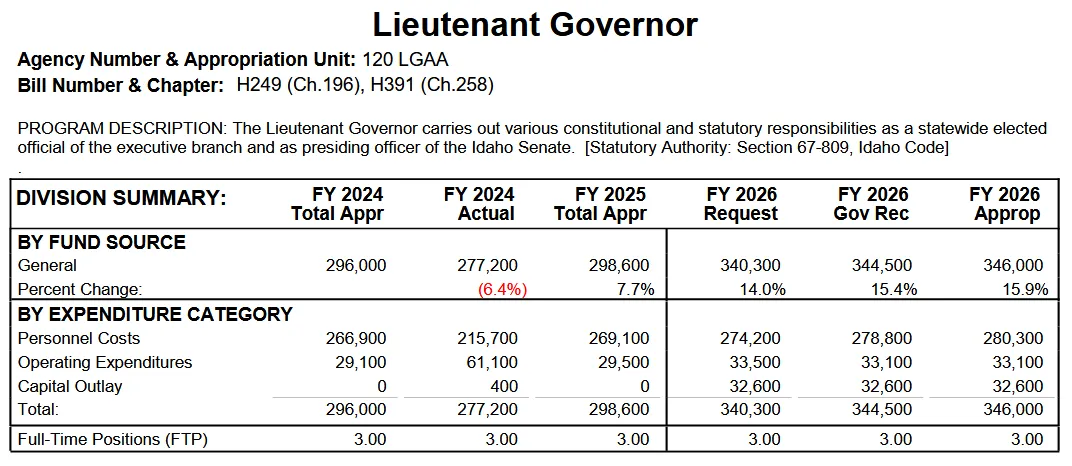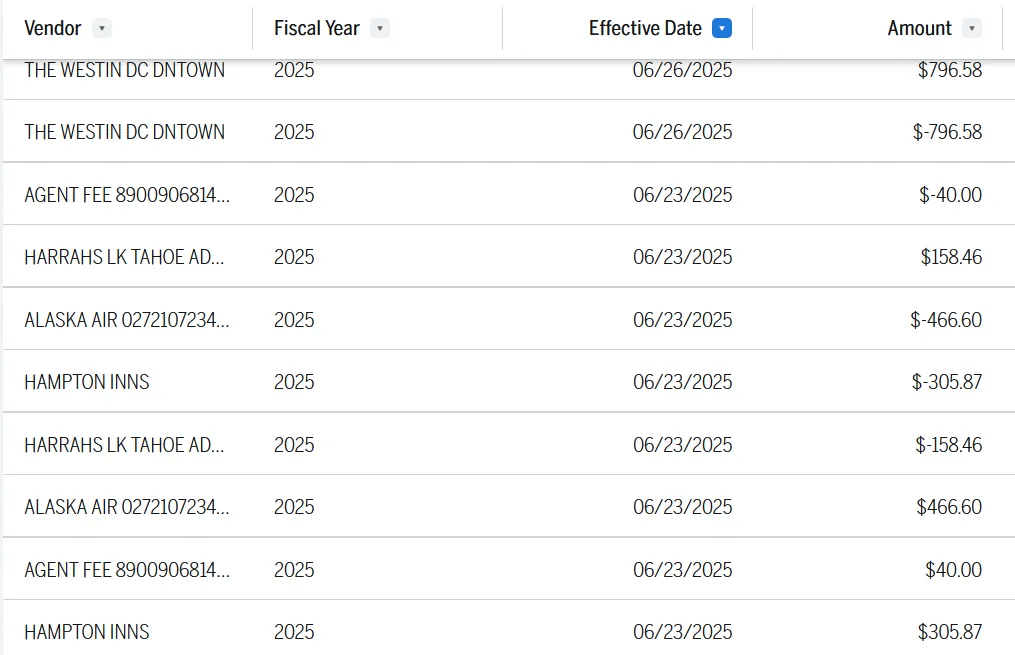There’s a scene in the 2000 Coen Brothers film O Brother, Where Art Thou? where incumbent Mississippi Governor Pappy O’Daniel discusses campaign strategy with his advisors:
In the early 20th century, the era in which the film is set, “reform” was the buzzword of the day. Government was seen as inefficient and dominated by corrupt political bosses, so voters were receptive to reform-minded candidates. The word “reform” became a catch-all, often meaning whatever the listener wanted it to mean.
DOGE—the Department of Government Efficiency coined by Elon Musk—is one of today’s buzzwords. Everyone reads into it what they want. Libertarians may see it as a mandate to abolish most of government. Many conservatives interpret it as a call to cut spending, no more and no less. And no doubt some politicians see it as another label to co-opt, like the Tea Party a decade ago.
Yet I believe the DOGE fad presents an opportunity for serious reform. It’s bringing attention to the mundane-yet-consequential details of state government operations, and with that attention could come real accountability. At the federal level, DOGE only worked because President Donald Trump gave its staff unprecedented access to federal payment systems, allowing them to follow the money and uncover waste, fraud, and abuse.
What’s the equivalent in Idaho? The DOGE Task Force was established by legislative leadership, so it’s approaching the problem from a different angle. In our state, the responsibility for following money trails lies primarily with State Controller Brandon Woolf and his office.
One of the presentations made at the first meeting of the DOGE Task Force last month was about Transparent Idaho, a website developed by Controller Woolf that provides detailed fiscal data for both state and local governments. It’s accessible to everyone: citizens, watchdogs, and legislators alike.
I think Transparent Idaho is a fantastic tool. But if we’re going to undertake the first serious reform of Idaho’s state government in more than half a century, we’re going to need even more information.
Let’s use the Office of the Lieutenant Governor as a case study. This is nothing personal regarding Lt. Gov. Scott Bedke—it’s simply the smallest of the seven statewide elected offices, which makes it easier to digest the financial data.
Here’s the office overview on Transparent Idaho. While the site provides actual expenses up to just a few weeks ago, for some reason the budget page only goes through Fiscal Year 2024. To see the most recent budget, then, we must turn to the Legislative Fiscal Report, which is the final tally of all budgets passed by the Legislature and signed by the governor.
Using the table of contents on the left-hand side, you can find the Office of the Lieutenant Governor. At the top, you’ll see this information:

Notice that the report includes the bill numbers that authorized these appropriations. You can look up those bills via the legislation webpage. (You have it bookmarked already, right?)
As you can see, the Legislature appropriated $346,000 for the Office in Fiscal Year 2026. Of that, $280,300 is designated for three full-time positions (FTPs). Flip back to Transparent Idaho, and you’ll see the three listed employees: Lt. Gov. Bedke, whose salary is set by statute; Chief of Staff Marylou Molitor; and a special assistant named Nathaniel Evenson:

Note that the office currently has two full-time employees and one part-time. I’m no accountant, but as I understand the terminology, that amounts to 2.5 FTPs. In other words, the office is not fully utilizing its personnel budget. That could explain why its actual expenditures in FY 2024 came in nearly $20,000 under budget.
That’s not necessarily evidence of wrongdoing, but it’s worth asking questions. Both Sen. Todd Lakey and Rep. Josh Tanner mentioned during the DOGE Task Force hearing that they want more detailed information about vacancies in state agencies. It seems agencies often request more FTPs than they actually use. Why? Perhaps they don’t need the positions filled right away, or maybe they prefer having the flexibility of budgeted—but unfilled—positions. I can only speculate.
The data that Sen. Lakey and Rep. Tanner are requesting could prove invaluable. If an agency consistently has double-digit vacancies, then perhaps it’s time for the Joint Finance-Appropriations Committee (JFAC) to consider trimming those positions from the budget. Recall that Amy Fecher, who led Arkansas’s Department of Transformation and Shared Services, testified that her state was able to eliminate 2,000 positions via attrition—without laying anyone off—as part of its reform initiative.
Rep. Tanner also raised another concern at the hearing: the lack of detail in many expenditure records. Returning to the Lt. Governor’s expense report on Transparent Idaho, you’ll see a lot of transaction data. Export it as a CSV file for a more granular look. Most of the Office’s expenses relate to personnel—salaries and benefits for the three employees. But on July 3, for example, the Office reimbursed Lt. Gov. Bedke $5,060 for in-state travel. No further details are available.
There are also some oddities with certain enumerated travel expenses are shown as paid and then credited back. I’m not sure what this means—were hotels reserved and then canceled? Or was money moved from one fund to another for some reason? Perhaps there is a way for Transparent Idaho to help regular folks better understand what’s going on.

A quick glance at the Lt. Governor’s Twitter account shows he travels frequently, and I’m not suggesting anything improper. This is simply an example of where transparency could be improved. Any citizen or lawmaker could file a public records request to obtain the receipts behind this data, so why not just make them publicly available on Transparent Idaho in the first place?
According to Greg Schenk, an analyst from the Controller’s Office who presented Transparent Idaho at the task force meeting, this issue has been debated internally. Ultimately, he said, Controller Woolf determined that the risk of exposing personal or confidential information through expense attachments was too great to include them by default. Yet Tanner pushed back, saying that the public deserves to know where public money is going.
Knowing not only where taxpayer money is going, but why it’s going there, was a major focus of the DOGE team at the federal level. Agencies were able to funnel money into questionable projects simply by omitting clear descriptions of each transaction. True transparency requires full disclosure, not just of amounts and recipients, but of purpose. True reform requires understanding what our tax dollars are being used for, so we—and our elected officials—can determine whether those uses are legitimate functions of government.
I’ve offered a few ideas for additional data at Transparent Idaho, but spend some time yourself on the site and you’ll find that it’s already overwhelming for anyone without a financial degree. I look forward to seeing Controller Woolf and his team continue to expand and refine the platform, which I believe is already well positioned to assist legislators and citizen activists in achieving true, lasting, and data-driven reform of our state government.
It’s easy to complain on social media that our elected officials aren’t doing enough to cut spending or reduce the size of government. But actually doing something about it requires effort, curiosity, and persistence. Idaho’s DOGE Task Force doesn’t have a team of federal agents with full access to every payment system, but we do have an army of engaged citizens who care deeply about responsible government.
Here’s what I suggest:
- Pick one state agency
- Explore it via Transparent Idaho
- Examine reports yourself, or export them and analyze them with AI tools
- If you find waste, duplication, or inefficiency, submit your findings to the Government Efficiency Portal
- Prepare to testify at the next DOGE Task Force hearing regarding your findings
Unlike voting for Pedro, DOGE isn’t going to make all our dreams come true. But it can be the beginning of something real if we choose to act. Let’s make it happen.
Gem State Chronicle is a reader-supported publication. To receive new posts and support my work, consider becoming a free or paid subscriber.
About Brian Almon
Brian Almon is the Editor of the Gem State Chronicle. He also serves as Chairman of the District 14 Republican Party and is a trustee of the Eagle Public Library Board. He lives with his wife and five children in Eagle.













